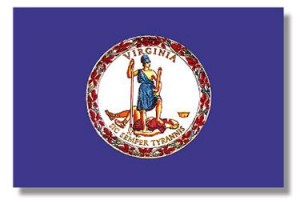
Supreme Court of Virginia Issues First Bona Fide Opinion on the Qui Tam Provisions of the Virginia Fraud Against Taxpayers Act — PART ONE OF TWO
At long last we have a bona fide Supreme Court of Virginia opinion concerning the qui tam provisions of the Virginia Fraud Against Taxpayers Act. Not only that, but SCOVA really came through with an opinion that will benefit qui tam relators and whistleblower lawyers everywhere.
Mind you, this is just the first SCOVA opinion concerning the qui tam provisions, but it is not the first opinion concerning the VFATA – that distinction belongs to my own Lewis v. City of Alexandria, which interpreted the equitable remedies portion of VFATA in the anti-retaliation context.
This is, by the way, the last word on a case that has been going on for some time now – I first covered this case back in 2016 (!) when the hot topic in the case was jurisdictional matters.
This case presents an important issue of first impression. In FCA litigation involving health care claims, as regular readers know, most cases have both a federal component (for payment coming from Medicare, the federal half of Medicaid, Tricare, etc.) and a state component (which covers the other half of the state’s Medicaid expenditures).
State Attorney Generals sometimes make the argument that a state is not required to pay a full relator’s share, but only a share based on what the state received. The two things are very different, as we shall see…
(As an aside, back in February of 2008 I organized the first-ever continuing legal education course on the topic of the Virginia Fraud Against Taxpayers Act. There were only two or three people in attendance, but one of them was Mark Friedlander, who told me during a break that he had recently filed a qui tam case in the Circuit Court for Fairfax County, Virginia. The case was still under seal, so he was limited in what he could say about the case, of course, but I didn’t forget…well, it turns out this was the case. Congrats to Mark, as well as to Eric Buescher, Niall McCarthy, and the team at Cotchett Pitre & McCarthy LLP.)
The case was filed back in 2007 against a number of labs alleging that Virginia’s Medicaid program had been defrauded when it was overcharged for certain lab tests. The Commonwealth declined to intervene and the case was unsealed. Ultimately, the relators settled with the defendants in the amount of $1,250,000. The Commonwealth’s approval was required, and given.
The relators and the Commonwealth agreed, prior to finalization of the settlement, that the relators would receive 28% of the settlement proceeds. After settlement, however, there was a disagreement about how that 28% should be calculated. Specifically, they disagreed about whether that 28% share should come out of the total, or gross, proceeds of the settlement, or whether the 28% share should come out of the Commonwealth’s net share of the proceeds — in other words, what remains of the $1.25M after the Commonwealth has refunded a portion of the proceeds to the United States.
The Virginia Attorney General took the position the Relator was not entitled to any portion of the funds that Virginia must repay to the federal government. (Bear in mind, Medicaid in Virginia is a 50/50 proposition, with the Commonwealth paying half and the feds paying half). The Virginia Attorney General also argued that relators were not entitled to any payment from that “portion” of the settlement that addressed conduct before the VFATA was enacted. These two arguments reduced the relator share from the agreed-upon 28%, down to 11%.
Following the procedural wrangling mentioned in previous posts, the trial court — now the Circuit Court for Fairfax County — found in favor of the relators, concluding that they were entitled to receive 28% of the gross proceeds of the settlement.
Incredibly, the Commonwealth did not make any arguments based on the plain language of the Virginia Fraud Against Taxpayers Act. I say “incredibly” because in Virginia Courts, arguing about the plain language of the statute will get you a long, long way, and they must have known that.
An appeal to the Supreme Court of Virginia followed, and the Supreme Court Decision was announced this month. In a strongly worded opinion, Justice McCullough had things like the following to say:
The Commonwealth chose not to intervene in this matter and as a result, it would be inequitable for the Relators to be undercut for performing a valuable service on behalf of the government, pursuant to the VFATA. Inevitably, such a result could create a chilling effect on the willingness of whistleblowers to bring claims under the VFATA….
And my personal favorite:
The Commonwealth maintains that we should construe the VFATA in a way that maximizes the recovery of funds and, to accomplish this objective, we should interpret Code § 8.01-216.7(B) to reduce the relator’s share. But it is not obvious that, in the aggregate, the Commonwealth’s proposed reduction in the relator’s share will produce more revenue from qui tam actions than construing “proceeds” to mean gross proceeds. A significant reduction in the relator’s share will discourage relators from bringing these lawsuits. The Commonwealth receives nothing when a relator decides to stay home and foregoes the risk and expense associated with a qui tam suit…
In part two we will look at the Commonwealth’s arguments a bit more…as well as the arguments raised in the amicus brief submitted by the United States…
![]()